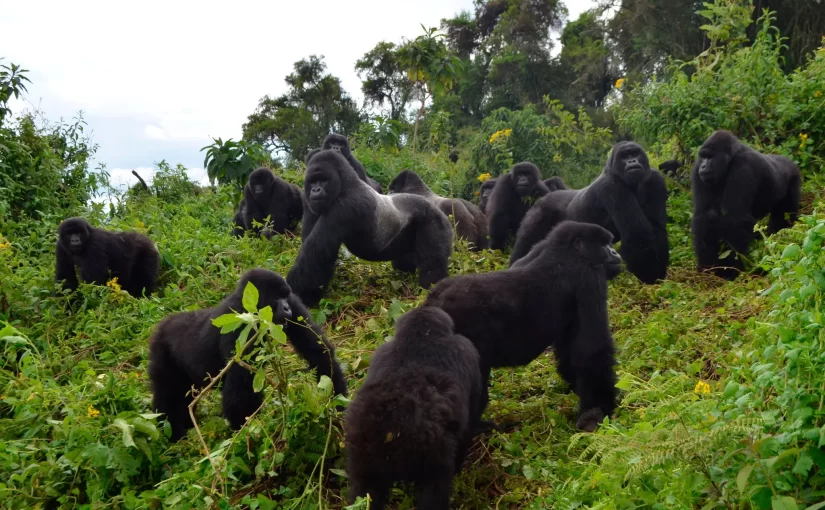This essay, by Tenzing Carvalho, 17, a student at Western Center Academy in Hemet, Calif., is one of the Top 10 winners of The Learning Network’s “How To” Informational Writing Contest.
What to Do When a Mountain Gorilla Blocks Your Path
You’re trekking through Volcanoes National Park in the Virunga Mountains of Rwanda, home to 605 of the world’s remaining 1,063 mountain gorillas. And then — bam. A 400-pound silverback stands in your path, chewing a leaf, staring at you like you owe it money.
First, do not run. Do. Not. Run. According to Volcano’s Head Ranger, Remy E., who has spent years keeping tourists from making bad decisions, “If you run, they chase. And trust me, you won’t win.” Gorillas can hit 25 mph, so unless you’re an Olympic sprinter fueled by terror, just don’t.
Instead, assume a nonthreatening posture. No eye contact, no sudden movements — just slowly squat down like you’re bracing for an awkward family photo.
If a gorilla from one of Volcano’s 14 family groups decides you’re in its way, just let it pass. “Sometimes they’ll brush by like an annoyed commuter in a packed subway,” says Remy. Just accept that you are not the main character here.
The massive guy with a silver-streaked back and “I run this jungle” energy? That’s the alpha male, the silverback. Trust me, you do not want to test him.
Whatever you do, don’t touch the babies. No matter how cute they are when they mess with your shoelaces, resist the urge to engage. A protective silverback will not find it adorable.
Instead, back up slowly, keep calm and — here’s the key — grunt. Gorillas make a deep, friendly rumbling to signal all is well. Take a breath and give it your best Grrr-hmmmph.
That throat-clearing grunt? It’s real gorilla-speak. Translation: “Hey, big guy. No problems here. Just passing through.” If he grunts back, congratulations — you’ve just had a polite conversation with a mountain gorilla.
Do not pound your chest. That’s gorilla for “Let’s fight,” and unless you can bench press a car, you will lose.
If a gorilla mock charges (pounding its chest and sprinting toward you), resist every instinct to scream and run. It’s a bluff. “Flinching is weakness,” Remy says. Hold your ground. Congratulations — you just passed the gorilla’s test.
This encounter only happens because of Rwanda’s decades of conservation efforts. Former poachers are rangers and guides, turning their knowledge into protection instead of hunting. The Dian Fossey Foundation works with the Rwandan government to make eco-tourism sustainable, ensuring both the gorillas and local communities thrive.
So why risk this encounter? Because seeing a wild mountain gorilla is unforgettable. They’re majestic, intelligent and — if you follow the rules — unlikely to make you famous for the wrong reasons.
